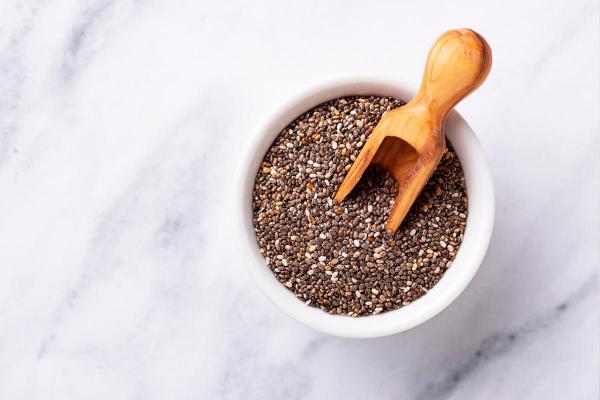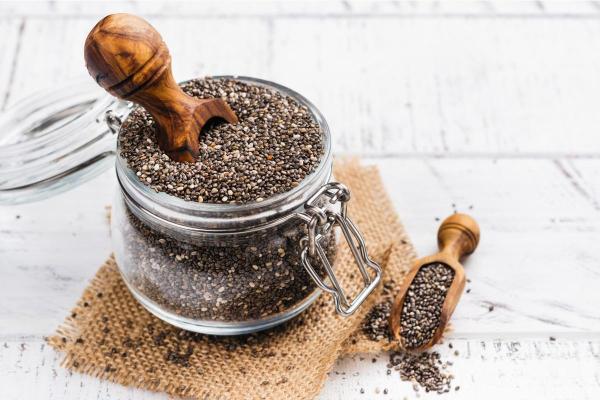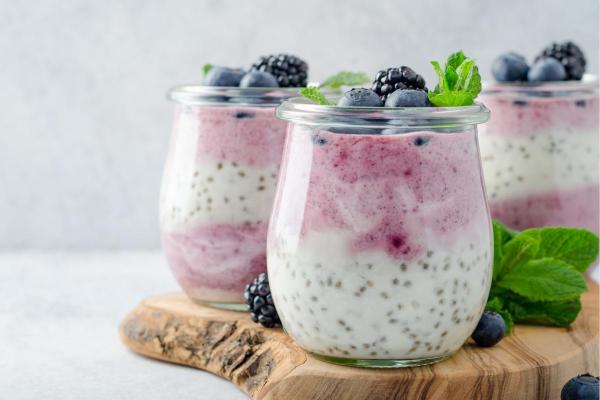Does Eating Chia Seeds Help You Lose or Gain Weight?


Chia seeds are the edible seeds of the chia plant (Salvia hispanica). While they are a food which goes viral every once in while on TikTok and other platforms, they are not often eaten on their own. They are usually an ingredient which is added to another recipe to give it a boost. For example, they may be sprinkled on the top of a bread roll or mixed in with a smoothie. They are used in these ways because of their relatively high nutritional value. This leads them to be used almost more like a supplement than a food.
Although popular among health food enthusiasts, there is often some confusion over the effect they have on the body. oneHOWTO aims to dispel this confusion by asking does eating chia seeds help you lose or gain weight?
Does chia make you gain or lose weight?
Chia seeds are rich in fiber and protein, two nutrients that provide a feeling of satiety for longer. This indirectly contributes to weight loss. By feeling full for longer, you avoid overeating and feel less hunger anxiety before meals. Additionally, the fiber they contain helps relieve constipation and its symptoms. These factors can be influential during attempts at weight loss. However, too much fiber can cause gas and bloating in some cases.
Adding chia seeds to your diet may not have much effect on their own if you're trying to lose weight. This is especially if you're eating a diet high in saturated fat, low in fiber and lacking in several essential nutrients.
In this way, it cannot be said that chia helps you gain or lose weight It will only help you lose weight if you follow a balanced diet, maintain a daily calorie deficit, promote healthy lifestyle habits and exercise sufficiently.
Does chia make you gain weight at night?
You can eat chia seeds at any time of day without the risk of gaining weight, this includes eating chia seeds at night. Some believe chia seeds provide antioxidants that are more easily absorbed while you sleep, but there is no conclusive evidence to support this. They can also help you lose weight because their satiating effect is an ally in curbing hunger before bed.
To learn more about what to eat when managing your weight, read our article asking is watermelon good for weight loss?

How many calories does chia have?
100 grams of chia seeds contain around 486 calories. If you consume two tablespoons (about 28 g) they provide 138 calories.
Regardless of its calorie content, chia seeds are considered a healthy food. This is because their properties as a foodstuff can help provide certain health benefits. These benefits include:
- They provide a large amount of omega-3 fatty acids, proteins and fiber.
- They are rich in antioxidants, essential for fighting free radicals that damage the body and can cause various diseases. These antioxidants have anti-inflammatory effects and help maintain healthy blood pressure.
- They contain important minerals such as magnesium, iron, calcium, phosphorus, zinc, and vitamins B1 and B3.
As you've seen, the fiber content of chia seeds is considered one of its greatest health benefits. If you suffer from digestive problems, you can find chia seeds on our list of foods that help you go to the toilet.

Benefits of chia for weight loss and how to take it
As we have explained, chia seeds do not help you gain or lose weight on their own. They are only beneficial in managing weight if you eat them as part of a balanced diet and maintain a suitable lifestyle. The main reason chia seeds are helpful in keeping off weight is that they can keep you satiated while being relatively healthy to eat. Chia seeds can help you stay the correct weight because they:
- Indirectly improving metabolism: chia seeds do not directly increase your metabolic weight, but they can help you keep satiated as the body metabolizes the other food you eat. This helps metabolism run efficiently without feeling the need to eat more.
- Antioxidant properties: flavonoids can better help metabolize fat because they decrease the need for calorie intake. These properties also help prevent problems associated with weight gain, such as cellulite and orange peel skin.
How to take chia for weight control
If you want to get all the health and weight-loss benefits of chia, but don't know how to take it, we share how you can eat chia seeds when losing weight:
- Raw seeds: consuming the seeds directly is one of the easiest ways to lower blood cholesterol levels.
- Chia gel: just boil water, add chia seeds and wait for it to thicken. You can then eat the gel by adding it to yogurt or by the spoonful.
- Ground chia: another option is to grind it into a powder. You can then add it to coffee or pretty much any beverage of your choice. Body builders often add it to power shakes.
- Chia water: this is probably the most practical and common way to consume it. Simply add chia seeds to water and carry a bottle with you throughout the day to sip it slowly.
- Chia oil: in this case, the benefits don't directly affect cholesterol, but you can use it to replace less healthy oils in cooking. It's also used for skin care, as it contains nourishing and soothing properties and improves skin elasticity.
If you want to learn more about how using natural supplements can help you reach your health goals, check out our article asking can you mix creatine and milk?
This article is merely informative, oneHOWTO does not have the authority to prescribe any medical treatments or create a diagnosis. We invite you to visit your doctor if you have any type of condition or pain.
If you want to read similar articles to Does Eating Chia Seeds Help You Lose or Gain Weight?, we recommend you visit our Healthy living category.
- Pineda-Gómez, P., Rosales-Rivera, A., Rodríguez-García, M.E., Peláez-Arroyave, M., & Salazar, G.A. (2022). Chia seeds (Salvia Hispanica L.): nutraceutical and functional properties. Chilean Journal of Nutrition, 49(6), 625-636. Available from: https://www.scielo.cl/scielo.php?script=sci_arttext&pid=S0717-75182022000600625
- Valenzuela, R., Morales, J., Sanhueza, J., & Valenzuela, A. (2015). Docosahexaenoic acid (DHA), an essential fatty acid in the brain. Journal of Hospital Nutrition, 32(6), 2383–2390. Available from: https://scielo.isciii.es/scielo.php?script=sci_abstract&pid=S0212-16112015001100006
- Abed, A., Hachem, M., Buteau, B., Rousseau, D., & Bernoud-Hubac, N. (2023). Dietary chia seeds: A natural source of omega-3 fatty acids. International Journal of Molecular Sciences, 24(3), 2098. Available at: https://pmc.ncbi.nlm.nih.gov/articles/PMC9834868/






